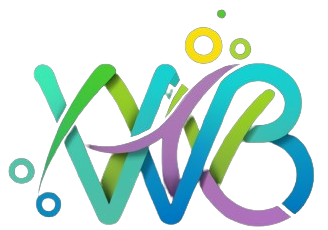In the digital age, where information is both a necessity and a tool for empowerment, Wikipedia stands tall as one of the most revolutionary platforms ever created. Launched in 2001 by Jimmy Wales and Larry Sanger, Wikipedia is now the world’s largest free online encyclopedia, available in over 300 languages and visited by millions of users daily.
What is Wikipedia?
Its name is a blend of “wiki” (a type of collaborative website) and “encyclopedia.” What makes Wikipedia unique is that it is written and edited by volunteers around the world
As of 2025, Wikipedia contains over 60 million articles across all its language editions, with the English Wikipedia being the largest, having more than 6.7 million articles. It covers topics ranging from history, science, and technology to pop culture, politics, and current events.
The Vision Behind Wikipedia
It was born from the idea that knowledge should not be restricted to academic elites or institutions but should be freely available to all.
Jimmy Wales once described Wikipedia as a platform to create “a world in which every single human being can freely share in the sum of all knowledge.” This powerful idea quickly resonated with internet users worldwide and sparked a global knowledge-sharing movement.
How Wikipedia Works
Unlike traditional encyclopedias written by experts, Wikipedia follows a collaborative model. Articles are constantly being created, edited, and updated by a community of volunteer editors known as “Wikipedians.” These contributors range from subject matter experts and students to hobbyists and casual users.
Wikipedia’s content is governed by several core principles, including:
- Neutral Point of View (NPOV): All content must be written fairly and without bias.
- Verifiability: Statements must be backed by reliable sources.
- No Original Research: Wikipedia is not a platform for personal opinions or unpublished research.
- Free Content: All articles are freely licensed under the Creative Commons Attribution-ShareAlike license.
To maintain quality, Wikipedia relies on a system of policies, guidelines, bots, and human oversight. There are also administrators (trusted users) who can block vandals, delete inappropriate content, and mediate disputes.
The Power of Community
One of Wikipedia’s greatest strengths is its community of contributors. Tens of thousands of active editors work tirelessly to update articles, remove bias, fix errors, and ensure the platform stays relevant. This self-correcting mechanism is what makes Wikipedia surprisingly accurate despite its open-editing nature.
Several studies, including a famous one by Nature in 2005, found that Wikipedia’s accuracy was comparable to that of professional encyclopedias like Britannica, particularly in science topics.
Wikipedia in Education and Research
Over the years, Wikipedia has become an indispensable tool in education and research. Students, journalists, professionals, and the general public use it to quickly learn about topics and get overviews. Universities have even started incorporating Wikipedia editing into their curriculum to teach students digital literacy and critical thinking.
However, Wikipedia itself warns users not to use it as a primary source. Instead, it should be a starting point, with references used for deeper exploration.
Challenges and Criticisms
Despite its success, Wikipedia is not without flaws. It has faced criticism for:
- Content Bias: Wikipedia has been accused of systemic bias, particularly a Western and male-dominated perspective in article coverage.
- Reliability Concerns: Due to its open nature, there is always a risk of vandalism or misinformation.
- Editor Demographics: Most contributors are from developed countries, leading to underrepresentation of topics relevant to the Global South.
- Complex Editing Interface: While Wikipedia is open to all, new users often find editing difficult due to technical complexity and strict rules.
The Wikimedia Foundation acknowledges these issues and has launched several initiatives to diversify its content and editor base, including outreach programs in Africa, Asia, and Latin America.
Technological Advancements
Wikipedia has embraced technology and automation to enhance user experience. Some of its innovations include:
- Wikidata: A structured database that supports Wikipedia articles and powers other knowledge platforms like Google’s Knowledge Graph.
- AI Tools: Bots and machine learning tools help detect vandalism, suggest article improvements, and flag problematic edits.
- Mobile Access: Wikipedia apps and mobile-friendly websites make it easy to access information from anywhere.
- Offline Access: Projects like Kiwix allow Wikipedia to be used in offline environments, which is vital for remote or underdeveloped regions.
Wikipedia’s Global Impact
Wikipedia is much more than an encyclopedia. It is a symbol of the open knowledge movement. In places where access to books or the internet is limited, Wikipedia serves as a lifeline to information.
It also plays a critical role during global crises. Whether it’s the COVID-19 pandemic, elections, natural disasters, or wars, Wikipedia’s articles are updated in real-time, providing the public with fast and reliable information.
Wikipedia and the Future
As we move deeper into the age of artificial intelligence, misinformation, and data overload, Wikipedia’s role becomes even more important. It continues to evolve, with efforts to integrate more multimedia content, voice interaction, and even automated summarization for mobile users.
The Wikimedia Foundation is also expanding into sister projects like:
- Wiktionary – A free dictionary
- Wikivoyage – A free travel guide
- Wikiversity – Free educational resources
- Wikisource – A library of free texts
These projects share Wikipedia’s core values of free and open access to knowledge for all.
Conclusion
Wikipedia is a shining example of what collective human effort and the open web can achieve. In just over two decades, it has redefined how we learn, teach, and share information, empowering billions of people worldwide.
Though not perfect, its commitment to openness, neutrality, and free access sets a high bar for all online platforms. In an era dominated by misinformation and paywalls, Wikipedia remains a beacon of free knowledge, a digital encyclopedia for the people, by the people.



